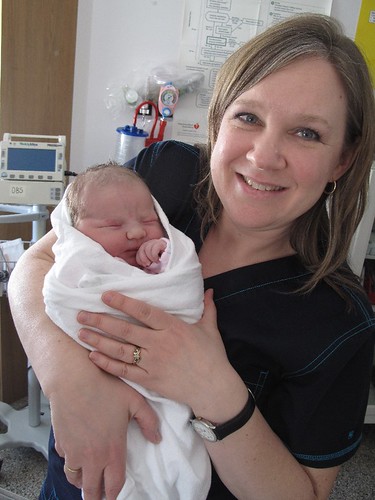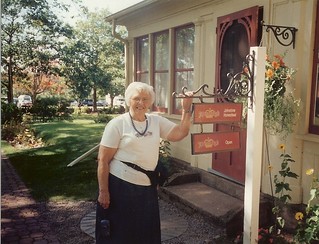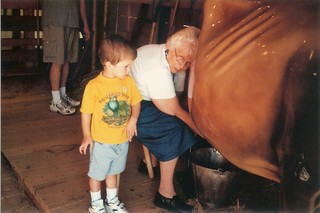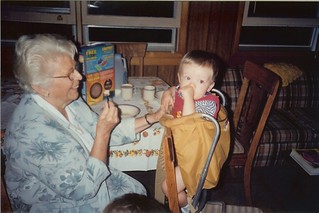<Spoiler Alert: If you haven’t seen Passengers yet and were going to see it stop reading now!>
In the movie Passengers, Jim Preston (played by Chris Pratt) is himself a passenger on an interstellar spacecraft who is woken from hibernation 90 years too early by a mysterious computer failure. As a result, he is trapped, alone on a spacecraft carrying more than 5 000 other sleeping passengers on the way to their eventual destination: a new planetary colony 60 light years from Earth.

I think part of the critical failure of the movie (only 31% of the reviews on Rotten Tomatoes were positive) can be blamed on the fact that the movie was sold to the public as something that it wasn’t ultimately trying to be. Movie trailers for the movie (see links below) and TV commercials cast it as an interstellar romance between Jim and another passenger named Aurora Lane (played by Jennifer Lawrence). The star-crossed lovers find themselves (and each other) facing a technological disaster that was (perhaps) caused by corporate greed or some other nefarious deed.
In one of the trailers, Jim ominously says that “there’s a reason that we woke up early,” and in another, “there’s something they didn’t tell us,” implying that some greater purpose was at work, leading to a desperate challenge that must now be answered by our heroes: Save the ship or be lost in space! Neither of these lines appeared in the film.
 The truth is that the movie is centered around something entirely different: a horrible dilemma that causes Jim to commit an unthinkable betrayal. (Last chance to get out before the spoiler). Inexplicably, Jim wakes up early, and alone, and spends more than a year as the only upright passenger aboard the Avalon, except for the android bartender. He tries everything he can to get help from the sleeping crew, or to contact Earth (already 15 light years away) but to no avail. Finally, in a desperate scene, he is also pushed to the brink of suicide, pondering his prospects in one of the air locks leading out into space.
The truth is that the movie is centered around something entirely different: a horrible dilemma that causes Jim to commit an unthinkable betrayal. (Last chance to get out before the spoiler). Inexplicably, Jim wakes up early, and alone, and spends more than a year as the only upright passenger aboard the Avalon, except for the android bartender. He tries everything he can to get help from the sleeping crew, or to contact Earth (already 15 light years away) but to no avail. Finally, in a desperate scene, he is also pushed to the brink of suicide, pondering his prospects in one of the air locks leading out into space.
After a torturous year in isolation he notices an interesting passenger on the ship manifest, Aurora Lane, who is still sleeping in suspended animation. Jim is then faced with the horrible dilemma: would he wake someone who could then be his companion and, as a result, damn them to the same fate?
After months of unsuccessfully trying to forget the possibility, he does this unthinkable thing, and turns off her sleep chamber, bringing Aurora into his personal nightmare – pretending at first that it was the result of another “malfunction.”
Things are great for Jim and Aurora, at least for a few months, as the two seem to make the best of a terrible situation but unfortunately for Jim the truth comes out. Aurora is enraged, feeling cruelly betrayed by the only other person she can spend the rest of her life with. The two interstellar castaways are left in an even more bitter isolation: alone together.

As movies usually do, a crisis comes along where Jim and Aurora must avert disaster by depending on each other and Aurora reaches her own moment of desperation when she realizes that unless she can save Jim, she will face the same fate that he did originally: spending the rest of her life alone.
Critics who panned the flick all observe that the romantic relationship the movie is supposed to be based on is terminally flawed. How can there ever be love in a relationship that was based such manipulation and deceit? Richard Roeper of The Chicago Sun writes that the movie “is a well-designed, initially intriguing, visually interesting sci-fi romance torpedoed by a premise … so creepy and misogynistic, it’s amazing nobody… raised concerns about [it].” Kwame Opam of The Verge writes that the relationship is “deeply disturbing, even enraging.”
In space, no one can hear you scream, “Restraining order!” – Kwame Opam
The critics are right of course. How could a relationship ever recover from such a betrayal? It is absurd and unrealistic. The whole premise of this relationship is built on a cruel, self-serving lie.
The mistake the critics make is that this movie is not a sappy love story. It is a forgiveness story. Aurora cannot forgive Jim for how he has betrayed her. She also bitterly realizes that she cannot punish him in such a way that would make this whole thing fair. In the film she says to Jim, “you have taken my life away from me! It’s like murder!” The betrayal has been committed and they are stuck with it.
While no couples you and I will ever know will be intractably stuck on a space ship for the rest of their lives, we likely all know more than one couple that have faced a cruel betrayal that cannot be humanly made right again. When I counsel soon-to-be married couples I warn them that they need to have a plan for what to do when they sin against each other, not if.
Christians should see marriage as being all about forgiveness, and it comes from a proper understanding of the cross and the resurrection. Forgiveness is not just something that occasionally happens in a world where Jesus is raised from the dead. N.T. Wright in his book The Day the Revolution Began, writes
Resurrection and forgiveness belong together. Both are the direct result of the victory won on the cross, because the victory won on the cross was won by dealing with sin and hence with death. Resurrection is the result of death’s defeat; forgiveness, the result of sin’s defeat. Those who learn to forgive discover that they are not only offering healing to others. They are receiving it in themselves. (p. 386)
Forgiveness is hard work and it takes time (much more than 1h 56 min, the running time of the film). One thing that helps with forgiveness is remembering the humanity of the offender, and that is something that Jesus helps us do. Aurora could not forgive Jim, at least not until she was forced into a situation where she can see things the way Jim saw them when he was first stranded on the spaceship.
In the same way, a first step for us when we are trying to forgive is to reflect on the fact that we are valuable because of what God says about us (we are an inherently valuable child of God) and so is the other person in our conflict.
Contrary to what you may have heard, love does not mean “never having to say you’re sorry.” In fact, true love comes only once you start getting good at it.
NCW


 In her book, Bound and Determined: Christian Men and Women in Partnership, Jeanene Reese observed that happiness is a bit of a fixation for Western culture. Many believe that marriage is for making people happy, and its not just marriages.
In her book, Bound and Determined: Christian Men and Women in Partnership, Jeanene Reese observed that happiness is a bit of a fixation for Western culture. Many believe that marriage is for making people happy, and its not just marriages. Pinterest is full of little projects that celebrate the “happiness of marriage.” But what if you follow the recipe shown here and find that it isn’t all that happy? What if marriage is instead frustrating and difficult, even when you follow the recipe?
Pinterest is full of little projects that celebrate the “happiness of marriage.” But what if you follow the recipe shown here and find that it isn’t all that happy? What if marriage is instead frustrating and difficult, even when you follow the recipe?

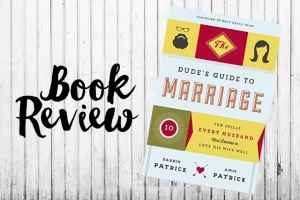


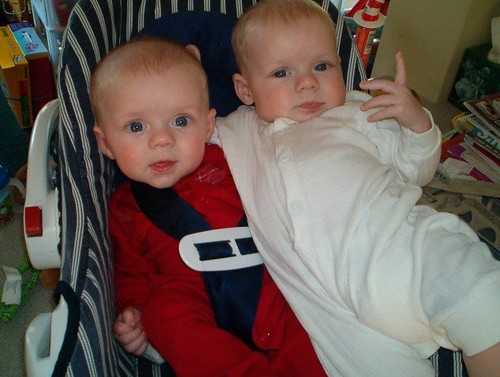 July 25, 2003 ended with a bang when our third son, brought a friend with him. They surprised us with their speedy arrival almost as much as they surprised us when we found out that there were two of them in the first place. Six months earlier, the routine ultrasound ended up being anything but routine. Let’s just say I’m glad I was lying down. It was at that moment that I realized that: A) God likes surprises, B) He had a lot of work to do on my control issues, and, C) I strongly suspect that He likes spoiling Noel more than me. Noel said when we were pregnant the first time that we should have four kids. He ominously pronounced that if I disagreed then we would just have twins during the last pregnancy. So ya, he’s spoiled.
July 25, 2003 ended with a bang when our third son, brought a friend with him. They surprised us with their speedy arrival almost as much as they surprised us when we found out that there were two of them in the first place. Six months earlier, the routine ultrasound ended up being anything but routine. Let’s just say I’m glad I was lying down. It was at that moment that I realized that: A) God likes surprises, B) He had a lot of work to do on my control issues, and, C) I strongly suspect that He likes spoiling Noel more than me. Noel said when we were pregnant the first time that we should have four kids. He ominously pronounced that if I disagreed then we would just have twins during the last pregnancy. So ya, he’s spoiled.
 Last March, the boys made a very important decision. They wanted to be baptized and make a life- long commitment to have Jesus as their saviour. Liam had been asking to be baptized for quite awhile and we weren’t sure if he really understood but every time we would discuss it he would have these very reflective, deep answers to any questions we would ask him. We finally asked ourselves why we would be holding him back and we couldn’t come up with a good answer. Often during our conversations Daniel wouldn’t say much but agree with Liam wholeheartedly. I said to him once that if he wasn’t ready than he could wait. Just because Liam wanted to be baptized didn’t mean that he had to as well. He looked at me like I had three heads and said he thought the same things Liam thinks it’s just that Liam always speaks first. Well, alright then. The two of them both could not imagine taking this step without the other. In fact they wanted to be baptized at the same time. So that’s what we did. I’m so grateful that despite our flaws and mistakes, all our boys have seen the love of Jesus and want to live a life committed to him. Sometimes I think we’re doing something right with this whole parenting thing.
Last March, the boys made a very important decision. They wanted to be baptized and make a life- long commitment to have Jesus as their saviour. Liam had been asking to be baptized for quite awhile and we weren’t sure if he really understood but every time we would discuss it he would have these very reflective, deep answers to any questions we would ask him. We finally asked ourselves why we would be holding him back and we couldn’t come up with a good answer. Often during our conversations Daniel wouldn’t say much but agree with Liam wholeheartedly. I said to him once that if he wasn’t ready than he could wait. Just because Liam wanted to be baptized didn’t mean that he had to as well. He looked at me like I had three heads and said he thought the same things Liam thinks it’s just that Liam always speaks first. Well, alright then. The two of them both could not imagine taking this step without the other. In fact they wanted to be baptized at the same time. So that’s what we did. I’m so grateful that despite our flaws and mistakes, all our boys have seen the love of Jesus and want to live a life committed to him. Sometimes I think we’re doing something right with this whole parenting thing.
